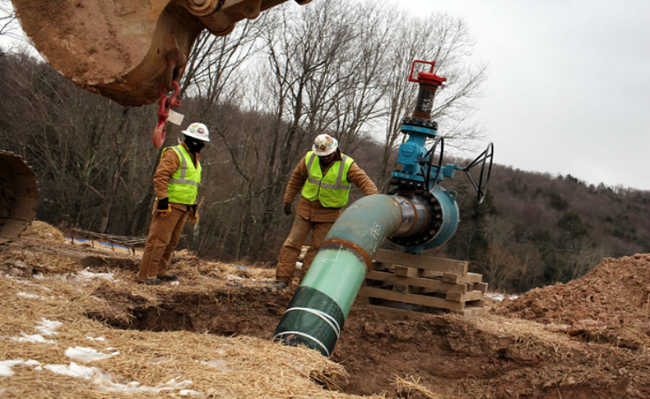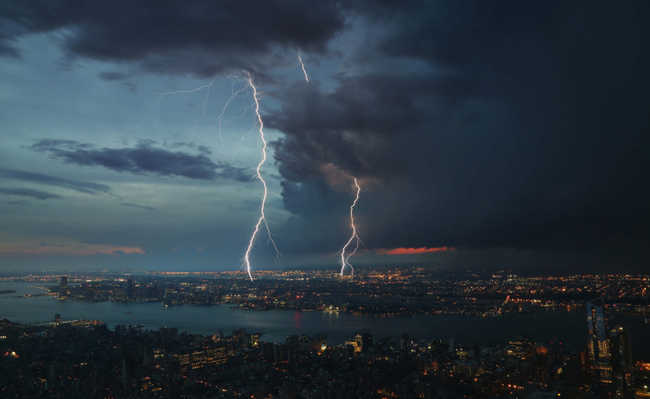The contradictions of fracking or hydraulic fracturing
Extraction of shale gas from the ground can damage and contaminate large areas. At the same time, there are economic advantages, reduced emissions and job creation

The technique of fracking or hydraulic fracturing is used to drill holes in order to extract a certain type of gas, shale gas, also known as shale gas (although this definition is not correct) or shale gas, from soil. The great advantage of the method is that it makes it possible to exploit gas or oil reserves that are not reached by the conventional method. However, the impacts caused to the subsoil are still unknown and, in some European countries, the fracking it's forbidden.
To understand what the risks are, a brief explanation needs to be formulated: the main reason for environmentalists' concern is that hydraulic fracturing wells are prone to leaks. In these places, water, chemicals and sand are pumped at high pressure vertically to fracture the subsoil shale. In other words, the soil and groundwater can be contaminated with substances that are harmful to health.
Much controversy surrounds the use of hydraulic fracturing. Recently, protesters from environmental organizations opposed the use of the technique to extract gas in a village called Belcombe, in England. Fracture had already been banned in the country in 2011, after geologists linked the technique to earthquakes in Blackpool, northwest of England. However, the method was resumed in the second half of 2013 under the claim that gas can be a cheap alternative to electricity - The UK faces problems in this regard.
The government's decision is generating a lot of discussion. The BBC produced a documentary about fracking, showing different points of view from interviews with geologists, politicians, residents (who claimed that water quality was impaired) and local workers (who previously suffered from lack of employment and now work in the wells).
The future of drilling
Major world powers that are going through an economic crisis, such as the USA, are betting many chips on the extraction of shale gas. US industries have invested more than $100 billion, creating more than a million jobs.
In an interview, US Energy Secretary Ernest Moniz defends the method. "We will be exporters and importers at the same time, but the net result could be zero," he said. Moniz also points out that the country could achieve energy independence within a decade.
The secretary spoke about the impacts of gas extraction on US society as a whole. “Shale gas has had a huge impact on the US economy, energy mix and environmental performance. Natural gas prices have plummeted. greenhouse (which is 17% by 2020). Of the reduction achieved so far, around 50% was due to the use of shale gas in the electricity sector".
The US example must be followed by other countries around the world that face economic and energy problems and can use the extraction of shale gas from the ground as a way to generate jobs and obtain political gains. Once again, the market must command the energy trend of large countries, making them invest in technologies that impact the environment to create palliative solutions. While large-scale gas production can reduce greenhouse gas emissions, land damage can harm thousands of people.
However, it seems inevitable that gas extraction will become widespread, as countries (including Brazil) need to remain competitive and cannot be left behind while the US and UK enrich their energy sources. With that in mind, the Brazilian government has been testing fracking since 2012, in the Parnaíba Valley (MG), Parecis (MT) and Recôncavo (BA) basins (see more).








